
UNILIFE Study
During the time spent at college, students make important shifts in their lifestyle behaviors, such as increased sedentary behavior and decreased physical activity. These factors, along with poor dietary and sleep habits, mixed with increased substance use can be a precursor to poor mental health. UNILIFE-M is a longitudinal survey that accessed a broad population from around the world to understand how changing lifestyle behaviors affect multiple mental health profiles in college students during their college years. With this information, mental health centers across campuses could better serve and reduce mental health risks in college students.
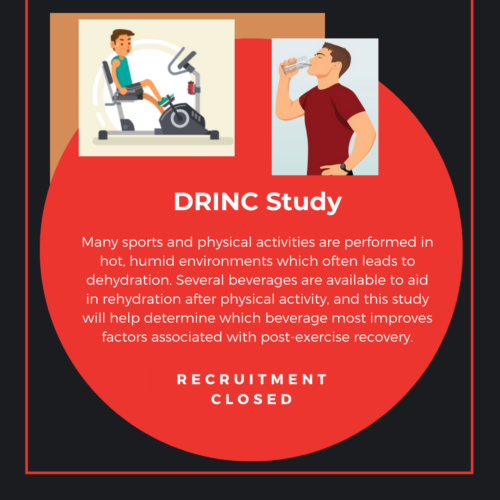
DRINC Study
Many sports and physical activities are performed in hot, humid environments which often leads to dehydration. Several beverages are available to aid in rehydration after physical activity, and this study will help determine which beverage most improves factors associated with post-exercise recovery.
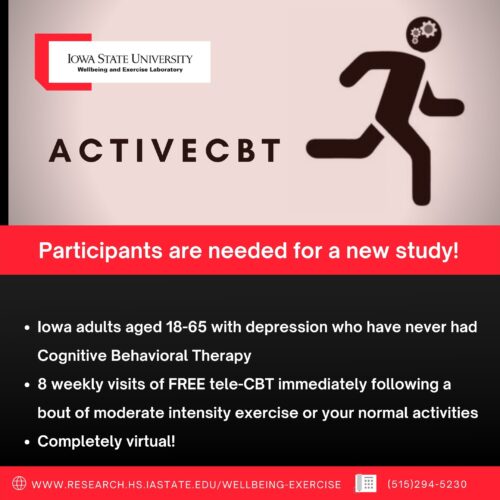
ActiveCBT
Current treatments for depression, including cognitive behavior therapy (CBT) and medication, are not effective for many people. In this study, we investigate the effects of a novel intervention approach for depression, examining how pre-therapy preparatory activities enhance the effects of each CBT session. This study will determine the potential of this new approach for improving current low depression treatment rates, with the prospect of expanding this approach to other mental health treatments and conditions.
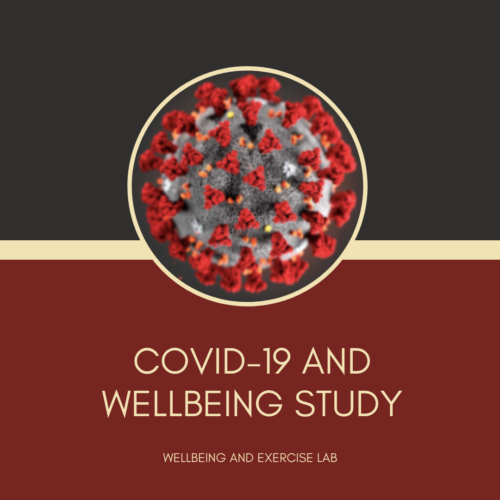
COVID-19 and Wellbeing Survey
As part of an international team, we are investigating the physical and mental wellbeing effects of COVID-19-related behavioral changes. This research will assist in policy planning for the currently evolving situation and for future global events.
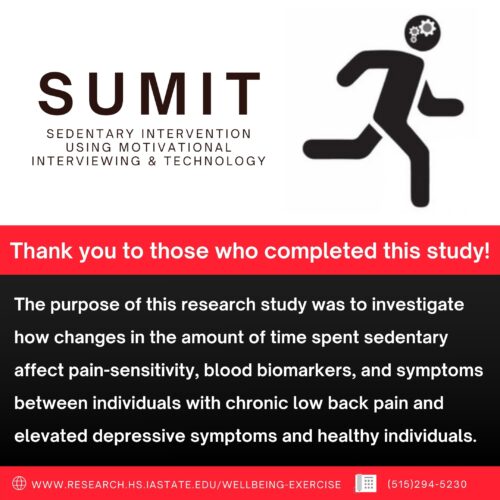
Sedentary intervention Using Motivational Interviewing & Technology
The purpose of this study was to determine the influence of exercise on important biological factors related to depression and how those factors change over a given time period. This study will provide the necessary first step for future research aimed at depression treatment development and testing.
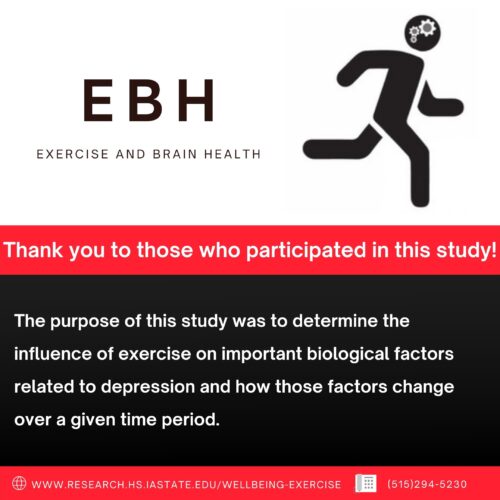
Exercise and Brain Health
The purpose of this study was to determine the influence of exercise on important biological factors related to depression and how those factors change over a given time period.
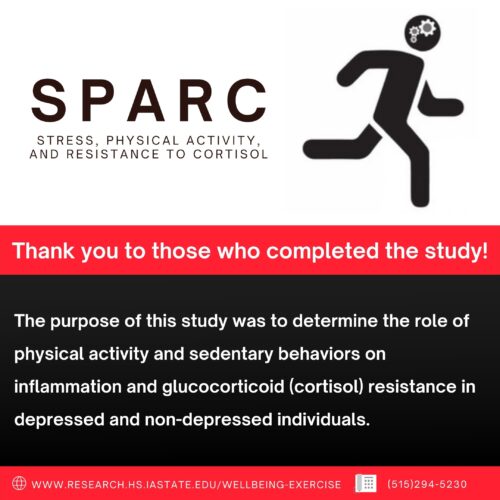
Stress, Physical Activity, and Resistance to Cortisol
The purpose of this study was to determine the role of physical activity and sedentary behaviors on inflammation and glucocorticoid (cortisol) resistance in depressed and non-depressed individuals.
